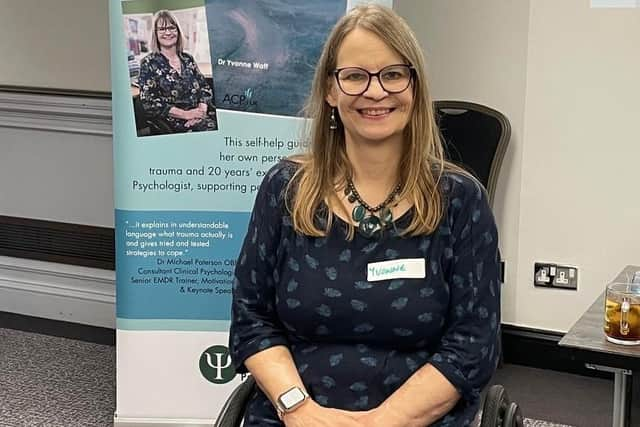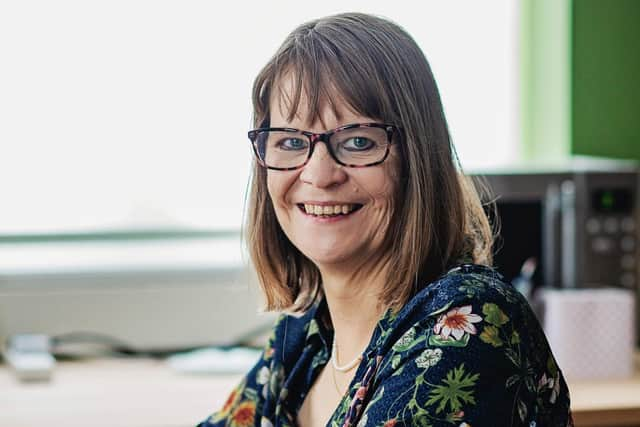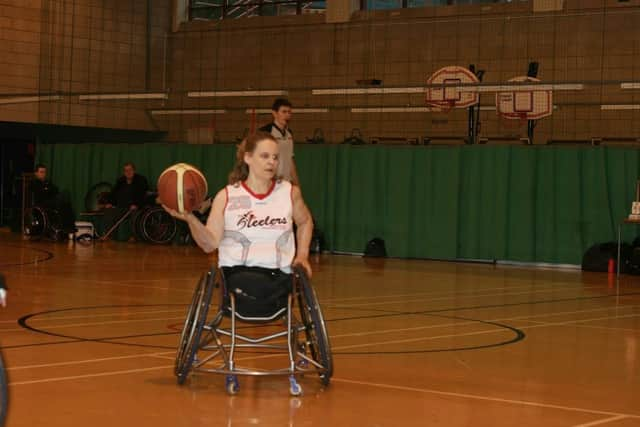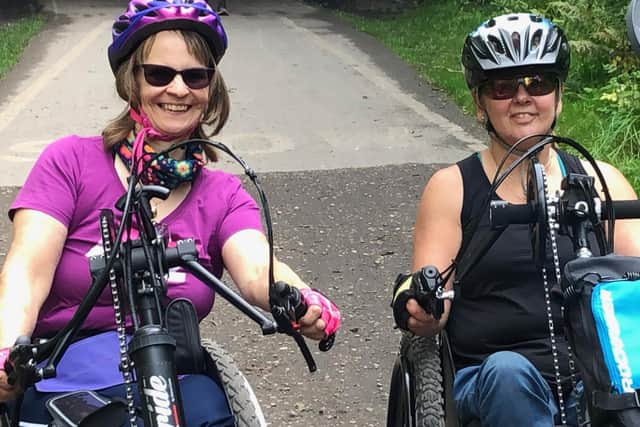How to cope with trauma: I lost my legs aged 19 due to meningitis but now I’m a clinical psychologist helping others
Dr Yvonne Waft, 57, from Wakefield said her “world was ripped from underneath her” when she caught meningitis while she was still completing her education.
Yvonne had nowhere to turn and had to learn how to cope with her life-changing disability.
Advertisement
Hide AdAdvertisement
Hide AdFollowing her illness and a long period of recovery, Yvonne felt drawn to begin studying for a degree in psychology, partly as a way to understand her own experience of trauma.


Around this time, she also met and married her husband, Robert, 56 with whom she has a daughter Georgina, 23.
While her daughter was still young, Yvonne went on to complete her Doctorate in Clinical Psychology in Leeds.
She said: “It was hard, I had a toddler in tow but I was determined to understand trauma and how people could help themselves.”
Advertisement
Hide AdAdvertisement
Hide AdYvonne later worked as a clinical psychologist for 15 years in the NHS in Wakefield before setting up her own private practice 11 years ago from home.


As a member of the UK Association of Clinical Psychologists, Yvonne was invited to write a series of books to be published by Sequoia Books on “Coping with …”. A series aimed at providing self-help from the perspective of Registered Clinical Psychologists with first-hand experience of the topic of each book.
Having both personal and professional experience of coping with trauma, Yvonne took the opportunity to write the book she had long been seeking for her clients.
She said: “I’ve always wanted to offer a self-help book to my clients but there was never anything quite right that I could recommend.
Advertisement
Hide AdAdvertisement
Hide Ad“From everyday trauma to dealing with abuse through childhood I cover all of that from the simplest to the most complex traumas.


“The after effects of trauma can make people feel like they’re out of control. People want to know how they can avoid this.”
Yvonne has now had her debut book published on how to cope with trauma.
She said: “There’s not enough access to mental health support when you’ve been through trauma. People end up trying to get help on TikTok and self-diagnosing.”
Advertisement
Hide AdAdvertisement
Hide AdHowever, Yvonne said advice you find on social media is not always helpful and it can do more harm than good.


She said: “Trauma is everywhere, from relatively simple car accidents all the way through to childhood neglect and abuse, or devastating combat experiences.
“These events have specific emotional and behavioural effects on a person.”
According to Yvonne, her self-help book is the first of its kind because it is written by a highly experienced Clinical Psychologist, who has experienced significant trauma in her own life.
Advertisement
Hide AdAdvertisement
Hide AdShe added: “Accessing good quality professional support with the aftereffects of trauma can be a lottery and people are often left wondering what on earth is happening to their mind. Statutory services can be underfunded and have long waiting lists.
“Private services can be very costly, outside of many people’s budgets. So where can you get good quality, evidence-based advice to help yourself?”
Drawing on a range of therapeutic approaches including Acceptance and Commitment Therapy (ACT), Cognitive Behavioural Therapy (CBT), Compassion Focused Therapy (CFT) among others, Yvonne’s book helps the reader to understand what is happening to them in the aftermath of trauma and how to cope with these impacts.
She added: “You will gain an understanding of how trauma works, enabling you to respond to yourself more compassionately, and you will learn tried and tested skills to cope well, moving from mere surviving, to thriving.”
Comment Guidelines
National World encourages reader discussion on our stories. User feedback, insights and back-and-forth exchanges add a rich layer of context to reporting. Please review our Community Guidelines before commenting.
